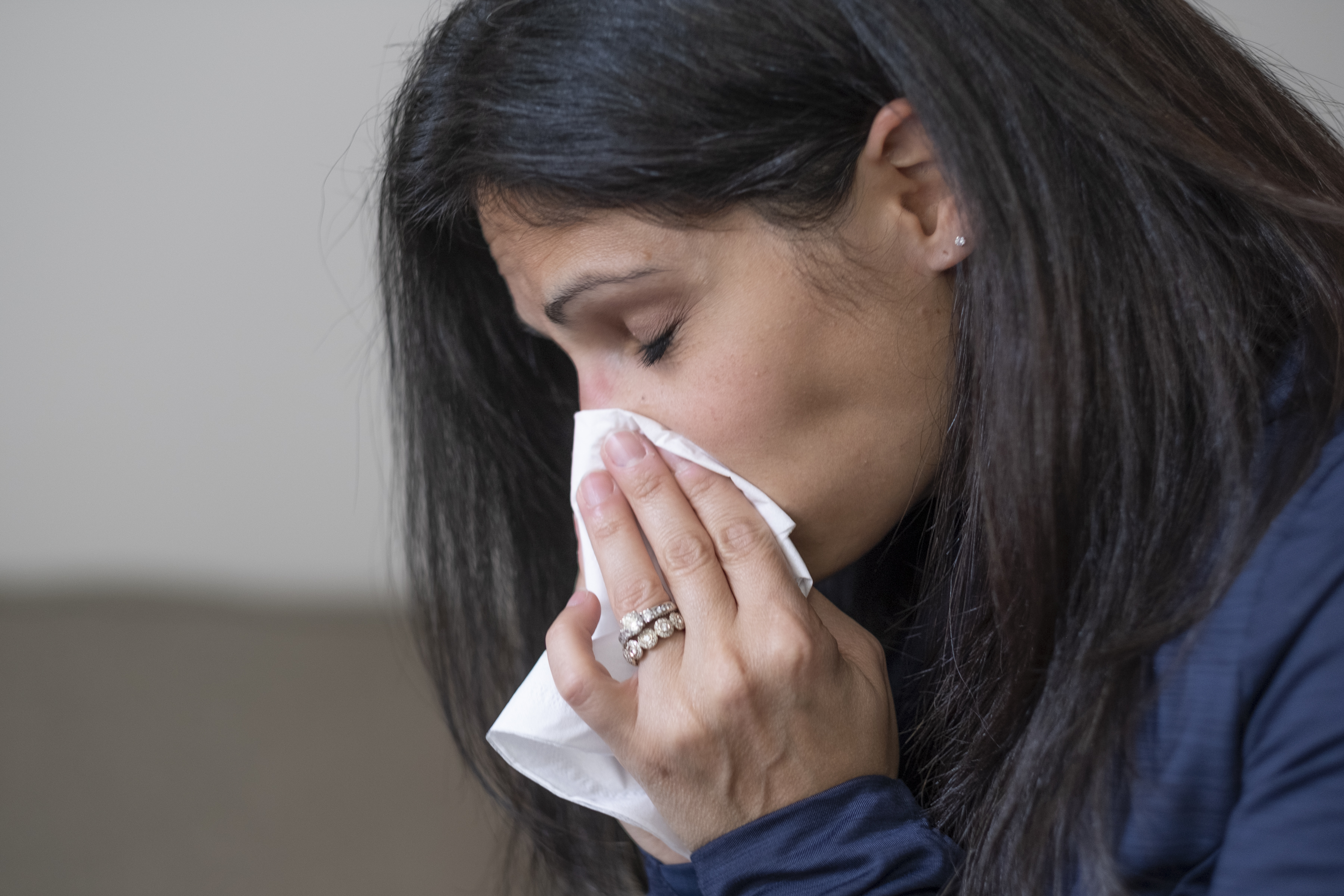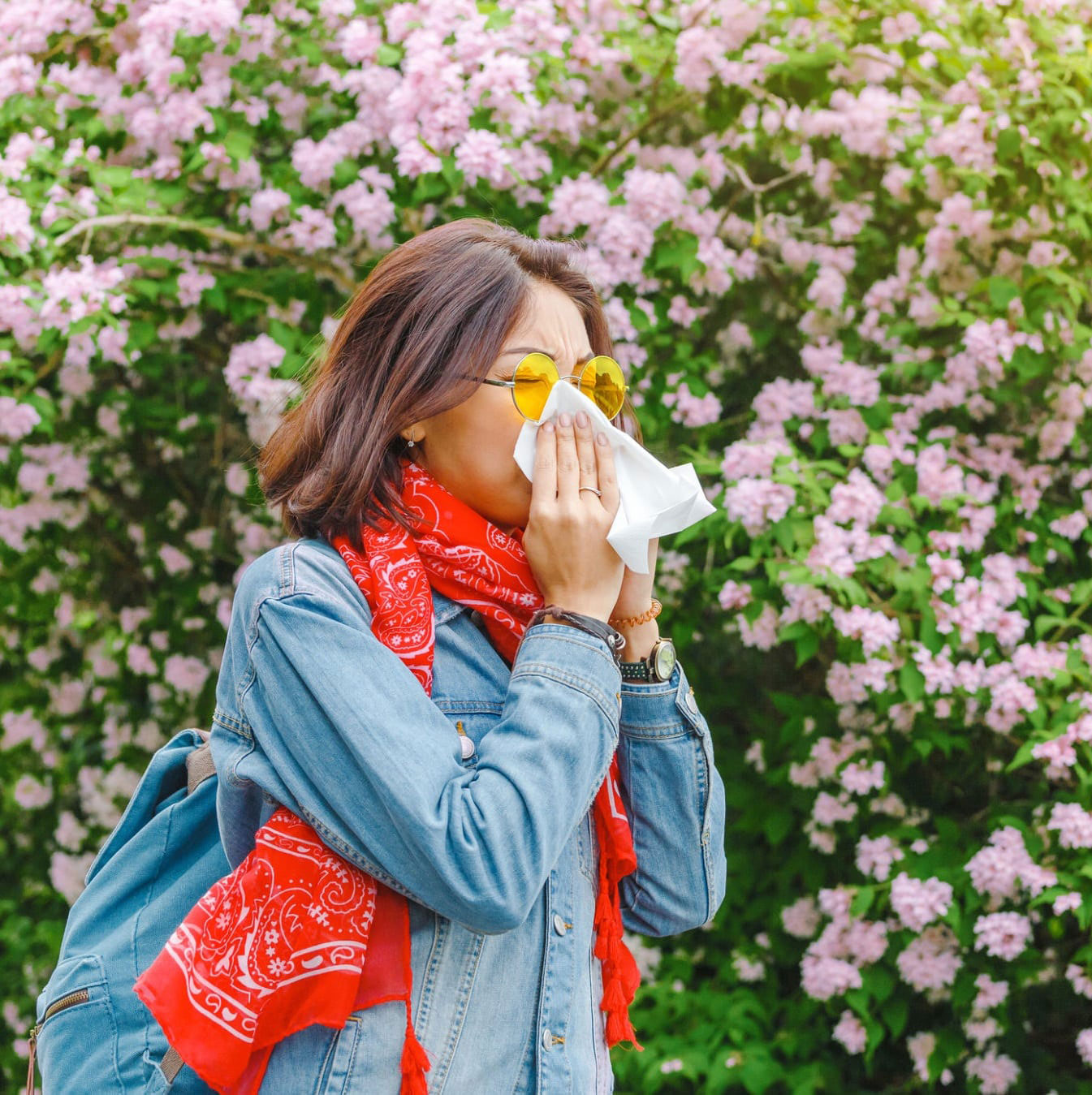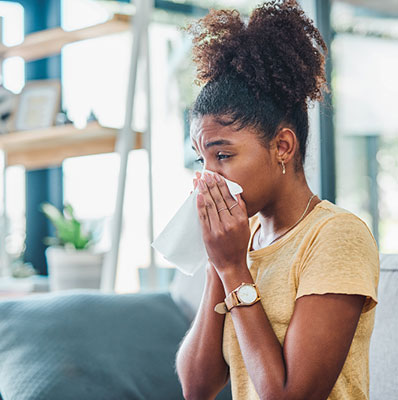Can You Develop Allergies as an Adult?

January 18, 2022
While most allergies present themselves during childhood, they are certainly possible to develop as an adult. “It’s not only possible, it’s becoming increasingly common for people to develop allergies in adulthood,” says Juan Ravell, M.D., division chief of allergy and immunology at Hackensack University Medical Center.
Why Adults Become Allergic
Doctors aren’t exactly sure why people develop allergies beyond childhood, but it may have to do with several factors:
- An aging population. As more people are living longer in the U.S., allergies in adults are becoming more prevalent, according to the medical journal Aging and Disease. As we age, our immune system becomes weaker over time and we are more susceptible to illness, including allergies.
- A changing environment. Climate change is causing the planet to get warmer, which causes flowers to bloom earlier and pollen season to become longer by several weeks, according to the Asthma and Allergy Foundation of America. There are higher amounts of pollen and mold in our atmosphere, which may cause people who never had allergies to develop symptoms.
- Hypervigilant focus on cleanliness. In the last few decades,we have become increasingly preoccupied with hygiene. The pandemic has only increased our awareness of germs. We use antibacterial soaps, alcohol-based hand sanitizers and bleach for wiping down surfaces. As a result, our immune systems aren’t used to fighting off minor invaders or germs, and our bodies can overreact with allergy symptoms.
Treatment for Allergies in Adults
For allergy symptoms that aren’t too bothersome, you may presume it’s okay to just grin and bear it. But while minor symptoms might seem harmless, they could be signs of more severe allergic reactions in your future.
“If you notice allergy symptoms coming on shortly after an activity such as eating a certain food, taking a new medicine, petting a cat or mowing the lawn, make an appointment to see your doctor,” says Dr. Ravell. “Your doctor may recommend that you see an allergy specialist and get tested to find out what you’re allergic to.”
Knowing When An Allergy Is An Emergency
In some people, exposure to certain allergens (substances that cause allergies) such as foods, mediations, insect stings and latex can trigger a severe allergic reaction known as anaphylaxis. It is a life-threatening medical emergency that requires immediate medical treatment, including prompt administration of intramuscular epinephrine, and it can be fatal if not treated properly.
Symptoms of anaphylaxis typically start within a few minutes of encountering the allergen, so it’s important to call 911 or your local emergency number and get to an emergency department as quickly as possible. Serious allergy symptoms that should not be ignored include:
- Trouble breathing
- Lightheadedness, dizziness, fainting or loss of consciousness.
- Hives; Itching; flushed, pale or blue skin
- Swelling of the face, eyes, lips or throat
- Nausea, vomiting or diarrhea
The best way to avoid having an allergic reaction is to avoid the allergen that’s causing the allergy, if possible.
“Your doctor will work with you to create a game plan to deal with your allergy,” Dr. Ravell says. “This could include taking steps to avoid certain foods or exposures, carrying an EpiPen, taking medication or getting injections.”
Next Steps & Resources:
- Meet our source: Juan Ravell, M.D.
- To make an appointment with Dr. Ravell or a doctor near you, call 800-822-8905 or visit our website.
The material provided through HealthU is intended to be used as general information only and should not replace the advice of your physician. Always consult your physician for individual care.
Find a doctor near me
Clinical Contributors
Have Allergies? 6 Signs You Should See a Doctor

Severe allergies? Dr. Halari offers relief. Learn 6 signs you need a doctor & find solutions for better allergy management. Call 800-822-8905.
Can Allergies Cause Dizziness?

Allergies causing dizziness? Dr. Younus explains causes and treatments. Find relief; call 800-822-8905.
Find a doctor near me

Are You Experiencing Allergies or a Cold?
Allergic or cold symptoms? Learn how to tell the difference from Drs. Cai, Lee, & Mezic. Find relief; call 800-822-8905.

Seeing the Whole Picture
Find holistic allergy & asthma care. Dr. Ross helped Collin manage his illness. Learn how she can help your child.

Can Hay Fever Affect Your Brain?
Hay fever impact on brain function explored. Learn how allergies may affect memory from Dr. Roche. Read more.

A Mom Trusts Her Gut
Find lasting solutions for your child's feeding issues. Dr. Loveridge-Lenza helped one mom in Manalapan. Learn how she helped her daughter thrive.

